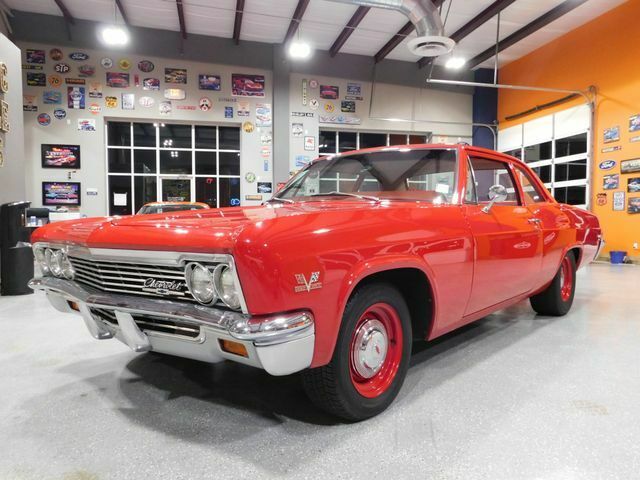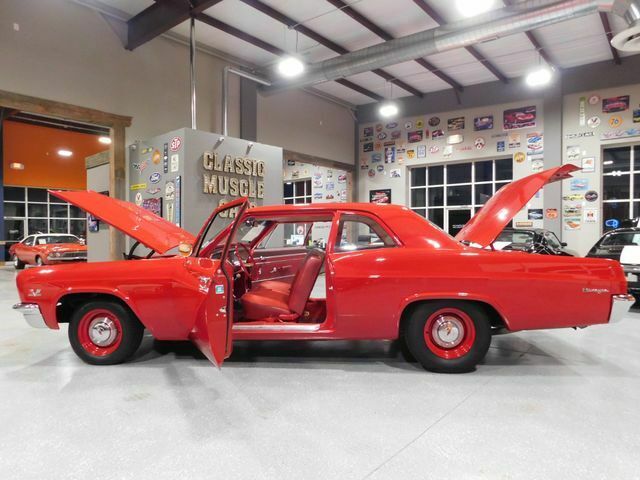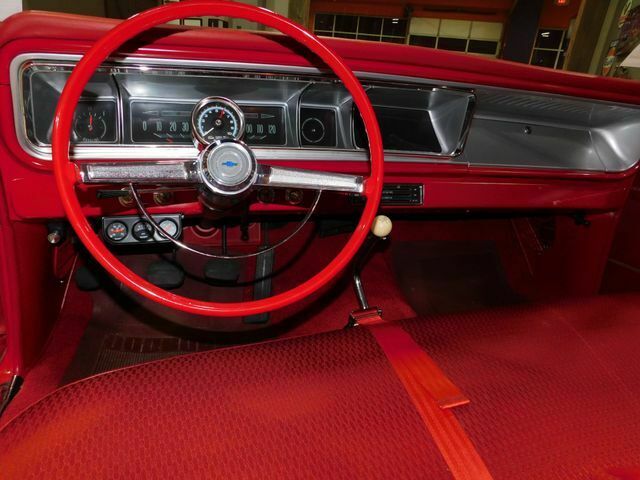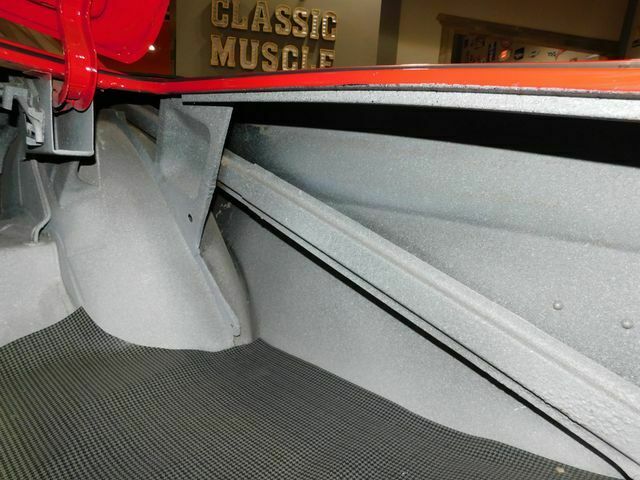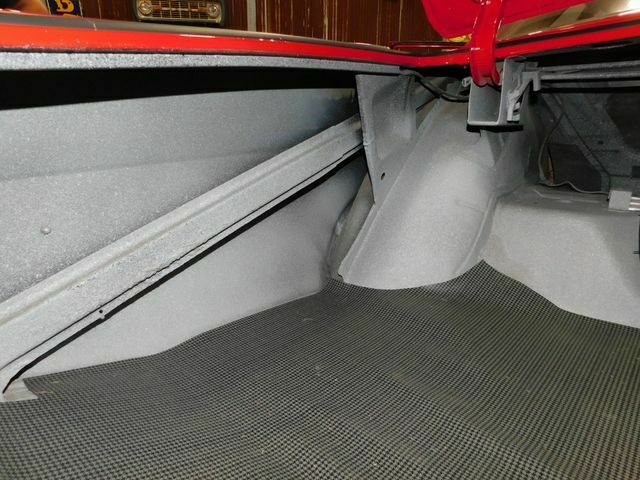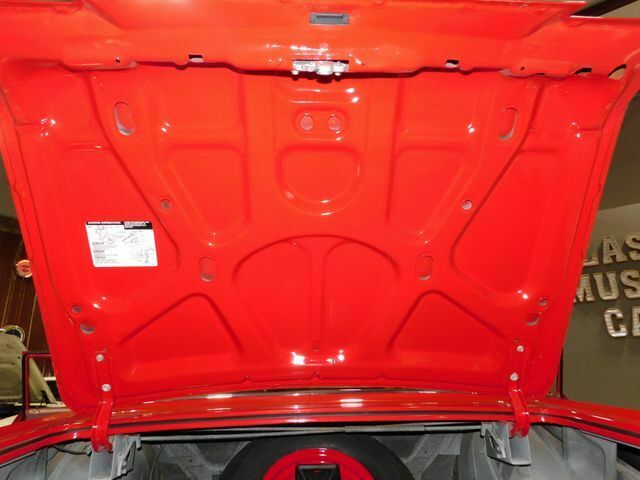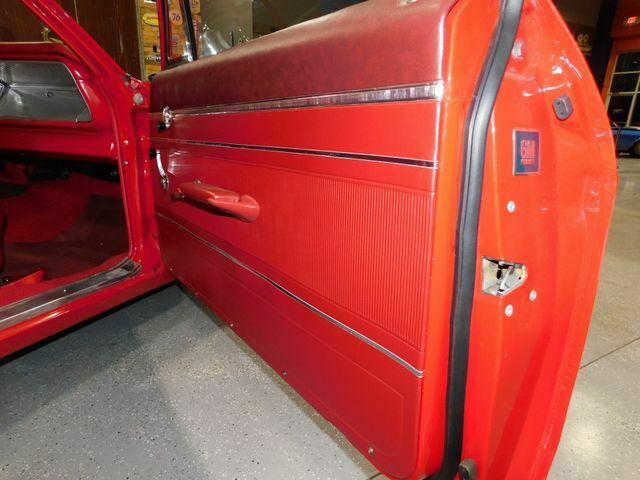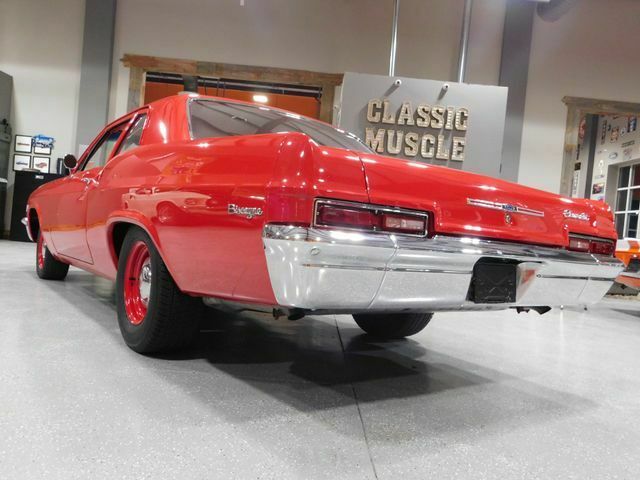1966 CHEVROLET BISCAYNE L72 427 425HP
- Location: Mustang, Oklahoma, United States
- Condition: Used
- Make: Chevrolet
- Model: Other
- SubModel: L72 427 425HP
- Type: --
- Trim: L72 427 425HP
- Year: 1966
- VIN: 154116L200855
- Color: Red
- Engine size: 8
- Power options: --
- Fuel: Gasoline
- Transmission: Manual
- Interior color: Red
- Options: --
- Vehicle Title: Clear
1966 Chevrolet Other L72 427 425HP Description
C1966 L72 BISCAYNE 4 SPEED THESE CARS HAVE BEEN SPOKEN OF IN HOTROD STORIES FOR DECADES BUT SELDOM SEEN TODAY AND THIS ONE IS A BEAUTIFUL EXAMPLE WITH IT'S NUMBERS MATCHING 427 425HP ENGINE MATED TO A MUNCIE 4 SPEED AND ULTRA RARE 12 BOLT POSITRACTION REAR END WITH COPO METALLIC BRAKE OPTION . THE PAINT AND BODY WORK IS OUTSTANDING AND MUST BE SEEN TO APPRECIATE SERIOUS BUYERS COME SEE THIS ONE TODAY OR CALL US FOR MORE INFOHERE ARE A FEW... FUN FACTS OF THESE RARE BEASTS AS TOLD BY HEMMINGS MOTOR NEWS....The L72 427 engine was rated at 425hp at 5,600 RPM and 460-lbs ft of torque at 4,000 RPM. Its bottom end featured a 4.251-bore four-bolt-main block (casting number 3869942), forged steel 3.76-inch stroke crank with hardened journals, 6.135-inch high-alloy forged steel rods and impact-extruded (forged) aluminum domed pistons. Not surprisingly, A/C was not available for the high-strung L72. It also had a rumpety-rump 750 to 850 RPM idle speed when most other Chevy engines idled at 500 RPM. Even the L36 390-horse 427 idle setting was 550-600 RPM.To verify a correct engine, a two-letter block code can be found on a pad just ahead of the passenger-side cylinder head, and is preceded by the engine plant code, "T" for Tonawanda, and build date consisting of two digits for the month and two for the day. The code for the 427/425hp L72 in a '66 full-size Chevy is "ID"; that engine is backed by a manual transmission.Though the documented L72 Biscaynes normally seen have four-speed transmissions, the AMA forms and Chevy paperwork states that the M-13 heavy-duty three-speed manual was standard. The M-20 wide-ratio four-speed, the M-21 close-ratio four-speed and the M-22 "Rock Crusher" heavy-duty close-ratio four-speed were optional. Leigh and Steve say that only two M-22s were installed in full-size cars for '66.Gear ratios for the three-speed are: First 2.41:1, Second 1.57:1 and Third 1.00:1. The M-20 ratios are: First 2.52:1, Second 1.88:1, Third 1.46:1 and Fourth 1.00:1, and the M-21 and M-22 gear ratios are: First 2.20:1, Second 1.64:1, Third 1.28:1 and Fourth 1.00:1. The gear teeth in the M-22 are cut with less angularity than the M-21, increasing both durability and operational noise. The main case casting number on the four-speed was 3885010 and the tail housing was 3857584. With the L72, the 11-inch clutch pressure-plate spring load was increased to 2,600-2,800 pounds from 2,450-2,750 pounds used with the other big-blocks.Chevy's 12-bolt differential featured an 8.875-inch ring gear and, when so ordered, an Eaton clutch-type Posi-traction unit. Division powertrain charts and the AMA forms indicate that 3.31:1 gears were standard with all the manual transmissions, and Posi-traction was optional. With the close-ratio four-speed only, 3.55 and 3.73 Performance axles, or 4.10, 4.56 and 4.88 High Performance axles with Posi-traction, were available at extra cost.At the four wheels were 11-inch drums that were 2.75 inches wide up front and two inches wide in the rear with a total swept area of 328.3 square inches. Metallic shoes were optional under code J65 and included a special 7/8-inch bore master cylinder. Power brakes were also an available option (RPO J50).
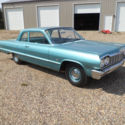 1964 Chevrolet Biscayne 409 425hp
1964 Chevrolet Biscayne 409 425hp
Mileage: 1,605
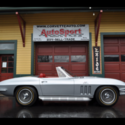 1966 Chevrolet Corvette 1966 425hp Silver Pearl/Red Custom Ordered 1 of ? 21395
1966 Chevrolet Corvette 1966 425hp Silver Pearl/Red Custom Ordered 1 of ? 21395
Mileage: 21395
 1966 Chevrolet Corvette L72 427/425hp Coupe
1966 Chevrolet Corvette L72 427/425hp Coupe
Mileage: 2,103
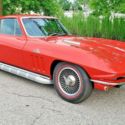 1966 Chevrolet Corvette Coupe 427/425HP
1966 Chevrolet Corvette Coupe 427/425HP
Mileage: 47908
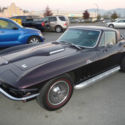 1966 Chevrolet Corvette Original 427/425hp
1966 Chevrolet Corvette Original 427/425hp
Mileage: 15,000
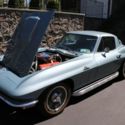 1966 Chevrolet Corvette 427ci/425hp
1966 Chevrolet Corvette 427ci/425hp
Mileage: 1,752
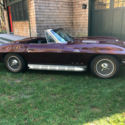 1966 Chevrolet Corvette Convertible 427/425hp
1966 Chevrolet Corvette Convertible 427/425hp
Mileage: 63000
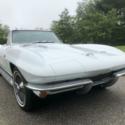 1966 Chevrolet Big Block 427/425hp Corvette.
1966 Chevrolet Big Block 427/425hp Corvette.
Mileage: 40297
 1966 Chevrolet Corvette 427-425HP! #'s match, TRADES?
1966 Chevrolet Corvette 427-425HP! #'s match, TRADES?
Mileage: 64,000
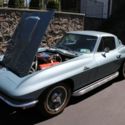 1966 Chevrolet Corvette Coupe 427ci/425hp
1966 Chevrolet Corvette Coupe 427ci/425hp
Mileage: 1,752
